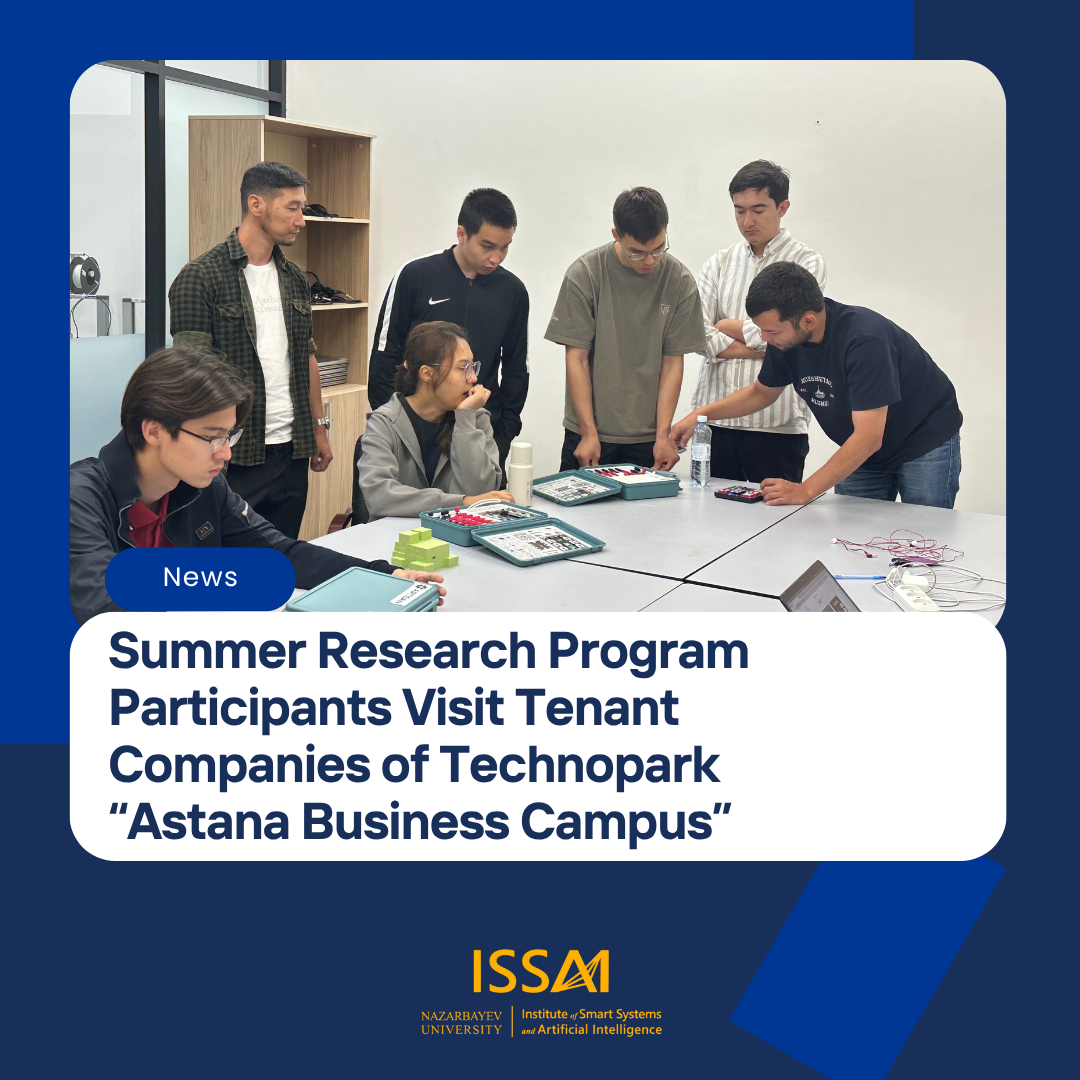As part of their broader learning journey, on July 25 participants of the Summer Research Program (SRP) at ISSAI had the opportunity to explore the innovative ecosystem of the Technopark “Astana Business Campus”, managed by the NURIS Center. The visit aimed to provide students with real-world exposure to Kazakhstan’s growing tech and startup landscape.
The Technopark “Astana Business Campus” is a key component of the university’s innovation cluster. It provides 3,000 square meters of space and a range of services to both local and international companies. Currently, the Technopark hosts 38 tenants, located both within the Technopark building and across other NU campus facilities.
The tour began with a presentation from Universal Tech Decisions (UTD), a scientific research company specializing in transport analysis and modeling. UTD helps cities tackle mobility challenges using advanced simulation tools, data-driven insights, and global best practices to enhance public transport, traffic management, and urban mobility systems.
Next, students heard from Networks Energy LLP, a Kazakhstan-based IT company and Technopark tenant. The company develops automation solutions for freight logistics, serving both Kazakhstan Temir Zholy and private carriers. Its system currently covers all 456 freight railway stations in the country, including 15 interstate junctions.
The third project was Aero Drone Laboratory LLP (Aerolab), a leading company developing and integrating unmanned aerial vehicles (UAVs) for use in education and agriculture. Aerolab also offers proprietary software to enhance drone operation, countributing to the advancement of Kazakhstan’s capabilities in aerial technology.
Students then visited Artisan Education LLP, an EdTech company specializing in robotics and engineering. Artisan offers a complete STEM ecosystem through its educational platform, hands-on robotics kits, and teacher support. The company currently partners with over 100 schools across Kazakhstan.
The next destination was Robotics and Artificial Intelligence LLP, located within the Technopark. This company develops advanced robotic solutions for post-stroke rehabilitation and surgical assistance.
Participants also explored Vbox, an innovative unmanned micromarket system. Unlike traditional vending machines, Vbox offers snacks, beverages, and full meal options—all accessible 24/7 without the need for cashiers or on-site staff.
The final visit was to the Aerospace Scientific-Practical Laboratory for Expanding GIS Capabilities (KazAeroSpace LLP). This ambitious project is developing a state-of-the-art facility that integrates cutting-edge aerospace technologies with geoinformation systems. The lab focuses on collecting, processing, and analyzing data from satellites and UAVs to strenghten Kazakhstan’s spatial intelligence infrastructure.
Throughout the day, SRP participants showed genuine curiosity, asking insightful questions about each company’s mission, recent achievements, and technologies in AI, IT, and engineering.
At ISSAI, we believe in fostering well-rounded development -which is why we organize productive and enriching activities beyond core research work. Many of the companies welcomed students to apply for internships or full-time roles, underscoring the mutual value of this engagement for both learners and industry.
With the SRP program set to conclude next week, we look forward to sharing the final outcomes and achievements from our student researchers in the near future.



